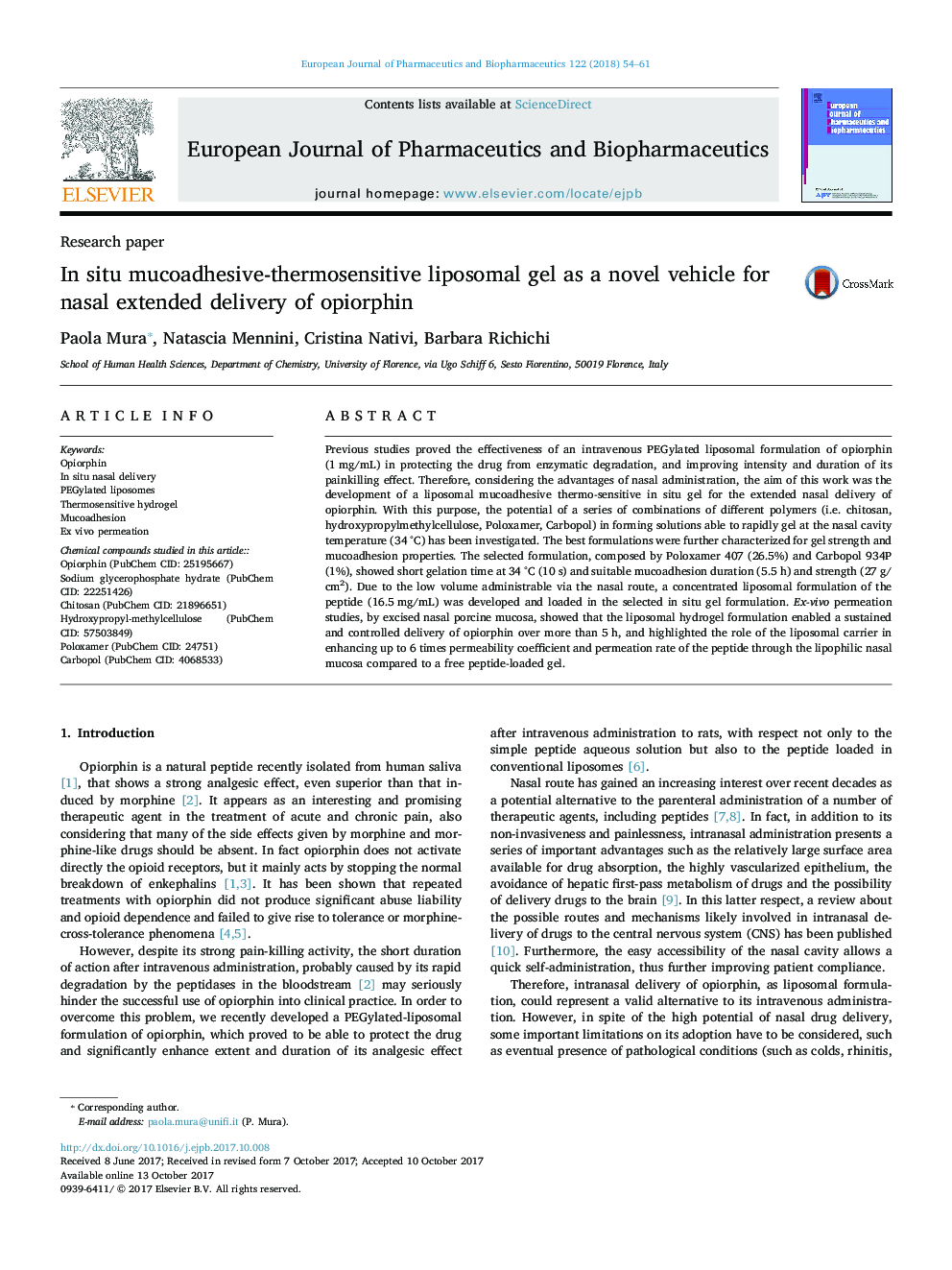| Article ID | Journal | Published Year | Pages | File Type |
|---|---|---|---|---|
| 5521349 | European Journal of Pharmaceutics and Biopharmaceutics | 2018 | 8 Pages |
Previous studies proved the effectiveness of an intravenous PEGylated liposomal formulation of opiorphin (1 mg/mL) in protecting the drug from enzymatic degradation, and improving intensity and duration of its painkilling effect. Therefore, considering the advantages of nasal administration, the aim of this work was the development of a liposomal mucoadhesive thermo-sensitive in situ gel for the extended nasal delivery of opiorphin. With this purpose, the potential of a series of combinations of different polymers (i.e. chitosan, hydroxypropylmethylcellulose, Poloxamer, Carbopol) in forming solutions able to rapidly gel at the nasal cavity temperature (34 °C) has been investigated. The best formulations were further characterized for gel strength and mucoadhesion properties. The selected formulation, composed by Poloxamer 407 (26.5%) and Carbopol 934P (1%), showed short gelation time at 34 °C (10 s) and suitable mucoadhesion duration (5.5 h) and strength (27 g/cm2). Due to the low volume administrable via the nasal route, a concentrated liposomal formulation of the peptide (16.5 mg/mL) was developed and loaded in the selected in situ gel formulation. Ex-vivo permeation studies, by excised nasal porcine mucosa, showed that the liposomal hydrogel formulation enabled a sustained and controlled delivery of opiorphin over more than 5 h, and highlighted the role of the liposomal carrier in enhancing up to 6 times permeability coefficient and permeation rate of the peptide through the lipophilic nasal mucosa compared to a free peptide-loaded gel.
Graphical abstractDownload high-res image (88KB)Download full-size image
